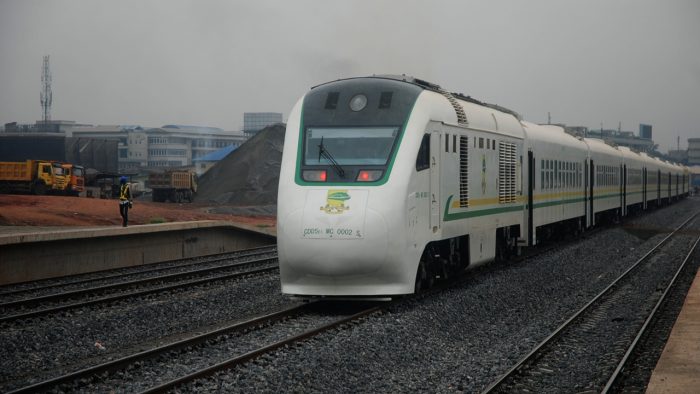Despite recent security concerns and the temporary closure of the Abraka Railway Station, Nigerian Railway Corporation (NRC) consultant Mark Adamu is calling on entrepreneurs and investors to recognize the immense economic potential along the Warri-Itakpe rail corridor, particularly in Delta State.
Speaking following the shutdown of the Abraka Station—a key stop along the Warri-Itakpe Train Service (WITS)—Adamu emphasized that while safety remains a priority, the crisis should not deter economic development or investment in the area.
Background: Violence Forces Temporary Shutdown
The closure of the Abraka Station comes in the wake of a violent clash between Fulani herders and local residents, which escalated into a security emergency. Students of Delta State University (DELSU), Abraka, took to the streets to protest ongoing kidnapping and violent crimes in the area.
A joint operation by local security forces, vigilantes, and hunters led to a deadly confrontation with suspected kidnappers, resulting in the death of several abductors, including a gang leader. However, the operation reportedly triggered reprisal attacks, further intensifying unrest and prompting the NRC to halt train operations at Abraka until stability returns.
Engineer Sanni Ganiyu, coordinator of the WITS service, confirmed that the decision was taken for the safety of passengers and railway staff.
Looking Beyond the Crisis
Adamu, a seasoned railway consultant and senior citizen, defended the shutdown, emphasizing that passenger safety must take precedence. However, he also urged stakeholders not to let insecurity overshadow the investment potential of the rail corridor.
“We must not allow temporary conflict to blind us to the lasting economic potential this corridor holds for Delta State and the entire Niger Delta region,” he stated.
Investment Potential of Warri-Itakpe Corridor
Adamu outlined a broad range of opportunities for investors willing to tap into the corridor’s economic landscape:
-
Logistics and transportation hubs
-
Freight and cargo terminals
-
Hospitality services and travel amenities
-
Tourism and cultural exchange ventures
-
Industrial development projects
-
Job creation across construction, operations, and management
With proximity to the Warri Port and manufacturing hubs, the corridor offers a strategic advantage for businesses looking to transport goods inland or connect with broader regional markets.
“With the expected volume of passengers and cargo, this area is ripe for commercial expansion,” Adamu affirmed.
Insecurity: A National, Not Local, Challenge
Addressing broader concerns, Adamu noted that insecurity is not unique to Abraka. He criticized the failure to decisively address nationwide threats and alleged that some military leaders may be driven by self-interest.
“The insecurity plaguing Nigeria is systemic. The solution exists, but political and personal ambitions have stalled real action,” he lamented.
Despite the challenges, he pointed to examples of investors operating in more volatile northern regions, urging potential backers not to view Abraka’s issues as permanent or insurmountable.
Recommendations to Government and Security Forces
To restore confidence and ensure long-term stability, Adamu proposed several actions:
-
Restructure Nigeria’s military leadership with a focus on integrity, competence, and national unity.
-
Support and fund local vigilante groups and community policing units.
-
Encourage security-led development efforts, particularly in vulnerable rural communities.
“The government must actively engage and empower local forces to defend their communities. Proper funding and oversight will help secure critical infrastructure and investments.”
Final Call to Investors
Adamu concluded with a message of optimism, insisting that the situation in Abraka is temporary and will soon be resolved. He encouraged investors to create both short-term and long-term plans for engagement, promising a return on investment for those willing to take the risk.
“The challenge is real, but so is the opportunity. Let us not allow fear to paralyze progress. Instead, let’s turn adversity into advantage and unlock the full potential of the Warri-Itakpe corridor.”
His message is clear: Nigeria’s security problems are serious, but they should not define the nation’s economic future.

